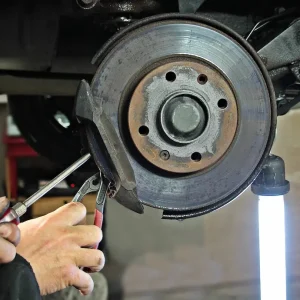The government has asked the automotive industry to prepare to end the sale of cars with internal combustion engines by 2035, or possibly sooner if a consultation decides it should be earlier.
Hybrid cars, which also use internal combustion engines, are also affected by the deadline – a factor intended to accelerate the adoption of pure EVs.
While the consultation process – or a future government – could change the target date, it signals the government’s intent, and it would take a courageous future administration to suggest going in a different direction.
While internal combustion engines will seem like old technology by the 2030s, they will linger on as used vehicles beyond the deadline. However, technology is available that will help ICE vehicles clean up their acts in future, as well as help countries and businesses meet emissions targets.
Bosch management outlined ways in which vehicles could become more sustainable in its annual media briefing, with renewable energy able to offset CO2 emissions, and urged regulators to consider them rather than making rules about vehicle emissions more restrictive.
Dr Volkmar Denner, CEO of Bosch, said: “We will need ways of making combustion engines themselves carbon-neutral. We can achieve this with renewable synthetic fuels.
“Precisely for this reason, it would be helpful to consider synthetic fuels in fleet consumption rather than tightening the CO2 rules for purely automotive emissions at times of crisis.”
Dr Stefan Hartung, responsible for powertrain solutions at Bosch, added that while diesel engines remain very efficient they have lost about 4% in market share recently and will eventually have to become carbon-neutral by using specific renewable fuels.
Ansgar Christ, expert for renewable synthetic fuels at Bosch, said: “Around half the vehicles that will be on European roads in 2030 have already been sold, most with gasoline or diesel engines. These vehicles will also have to play their part in cutting CO2 emissions. This can only be achieved with renewable synthetic fuels.”
Synthetic fuels have a chemical structure virtually identical to fossil fuels, but they are more stable and they do not deteriorate with age.
But the main challenge with the fuels is developing infrastructure to produce them economically so prices are comparable with fossil fuels.
Christ said: “The ‘raw material’ of ‘synfuels’ is electricity, water and carbon dioxide taken from the air, turning a greenhouse gas into a resource.
“Bosch itself is producing powertrain solutions like injection systems for engines, but not the fuel itself. Most production processes stem from the last century, thus synthetic fuels have long since left the basic research phase. So technically speaking, it is already possible to manufacture synthetic fuels – also on a large scale.”
“The Fischer-Tropsch process produces a whole range of hydrocarbons from which any fuel from petrol to heavy oil can be refined. The question which vehicles will benefit first from synthetic fuels is not so much a technical one as much more an economic one.”





